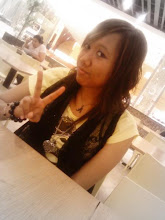Social media outlets differ from traditional media (e.g., print magazines and newspapers, TV, and radio broadcasting) in many ways, including quality, reach, frequency, usability, relevancy, and permanence. Additionally, social media outlets operate in a dialogic transmission system (i.e., many sources to many receivers) while traditional media outlets operate under a monologic transmission model (i.e., one source to many receivers). For instance, a newspaper is delivered to many subscribers, and a radio station broadcasts the same programs to an entire city.
Since the dramatic expansion of the Internet, digital media or digital rhetoric can be used to represent or identify a culture. Studying the rhetoric that exists in the digital environment has become a crucial new process for many scholars.
Observers have noted a wide range of positive and negative impacts when it comes to the use of social media. Social media can help to improve an individual's sense of connectedness with real or online communities and can be an effective communication (or marketing) tool for corporations, entrepreneurs, non-profit organizations, advocacy groups, political parties, and governments. Observers have also seen that there has been a rise in social movements using social media as a tool for communicating and organizing in times of political unrest.
Social media can also be used to read or share news whether it is true or false. With no real ability to distinguish between the two. It is down to the user of the platform to find the source reliable or not.
Since the dramatic expansion of the Internet, digital media or digital rhetoric can be used to represent or identify a culture. Studying the rhetoric that exists in the digital environment has become a crucial new process for many scholars.
Observers have noted a wide range of positive and negative impacts when it comes to the use of social media. Social media can help to improve an individual's sense of connectedness with real or online communities and can be an effective communication (or marketing) tool for corporations, entrepreneurs, non-profit organizations, advocacy groups, political parties, and governments. Observers have also seen that there has been a rise in social movements using social media as a tool for communicating and organizing in times of political unrest.
Social media can also be used to read or share news whether it is true or false. With no real ability to distinguish between the two. It is down to the user of the platform to find the source reliable or not.










No comments:
Post a Comment